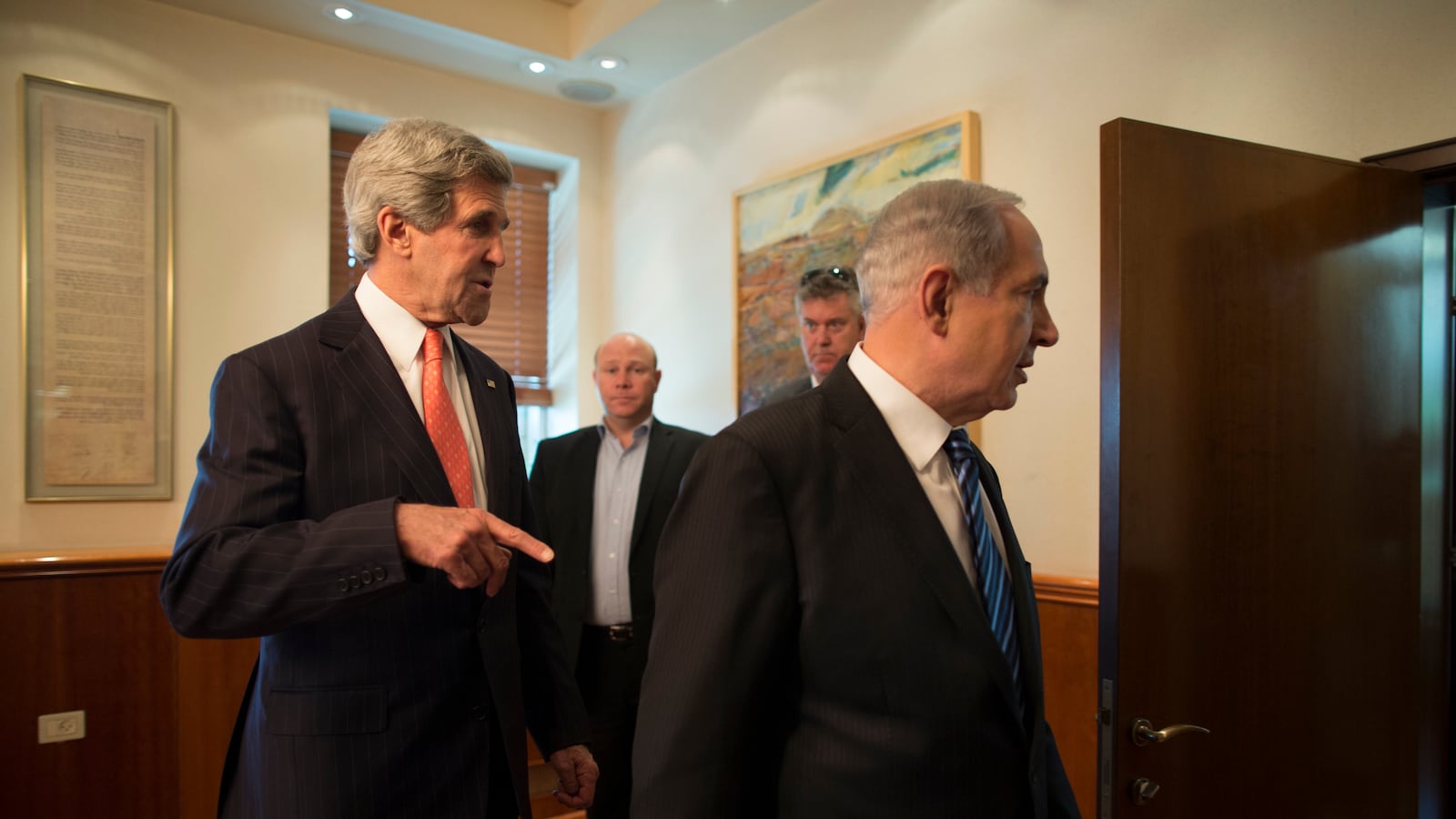"I want everything. I'm all in." That was the big quote out of American Secretary of State John Kerry's first day in Israel and Palestine. It wasn't about U.S. pressuring the parties to resume negotiations, the ever-present goal of Kerry's shuttle diplomacy. The quote was about a shwarma. Some garlic sauce, fresh and pickled veggies and maybe even some hots. It was nice that Kerry could have "everything" on his sandwich, because the peace process, so far, has been a big nothing-burger. But the trip has seen some accomplishments. Did I mention that after the shwarma, Kerry threw dental caution to the wind and stopped in across the street for some legendarily sugary Palestinian sweets? Between the two purchases, a couple of Palestinian shopkeepers probably just came into about 20 shekels, around five bucks worth of economic peace. Oh, and no deal was inked, but Kerry did manage to sign Israeli President Shimon Peres's guestbook.

That his trip wouldn't go very well seemed clear from the weeks leading up to the visit, Kerry's fourth to Israel and the West Bank as Secretary of State. All you needed was to read the New York Times curtain-raiser on the trip: "Support for Kerry’s Mideast Peace Efforts on Eve of Visit." The headline is somewhat absurd: there isn't much in the way of support. An anonymous Israeli official told the Times's Isabel Kershner, “Are we there yet? I’m afraid not, but we might be very close"—and that's as supportive as things get. A Palestinian offical said the Israelis were balking at their conditions for talks, which include freezing settlements. The Palestinian official added, "I would prefer to say I am hopeful, even though I have nothing to base that hope on." Then Kershner helpfully reminds readers of Israel's recent announcement that construction of 300 new settlement homes would go forward.
There's no mention in the Times of the four "outpost" settlements—illegal under Israeli law—that Israel just koshered. Nor of the recent squabbles in the Israeli parliament between various members of the ruling coalition about whether the official position of their government supports the two-state solution. Nor that Israeli and Palestinian officials have recently been griping to the Israeli press about Kerry's full head of steam. That ingratitude's surprising, especially from the Israelis. Late last month, Kerry extracted concessions from the Arab League in their re-vamped Arab Peace Initiative offer; that development was met with evasiveness by Israeli Prime Minister Benjamin Netanyahu, who's been silent on the matter. Last week, Kerry went at Israel's behest to prevail upon the Europeans to refrain from labeling products from West Bank settlements as such—with the delay justified by the prospects of resumed talks.
This is all thankless work, it turns out. Shimon Peres, during their meeting, put the onus on Kerry to get a process going: "If you will succeed, it will be our success," Peres said. "If you will miss, we shall miss." Kerry responded that Peres had it backwards: this was a matter of the parties' agency. "You said, If you succeed or if you—it’s not me, Mr. President," Kerry told the soon-to-be nonagenarian. "It really is a question of whether Israel and the Palestinians make the choices." That those choices would be made seems as unlikely as ever. But Kerry's shwarma remark about being "all in" might apply to the peace process: Barack Obama, during his Spring trip to the Holy Land, warned Israel about the dangers of not making peace, but nonetheless assured Israelis that, "so long as there is a United States of America," unconditional U.S. support would flow no matter what happened. All in, indeed.






